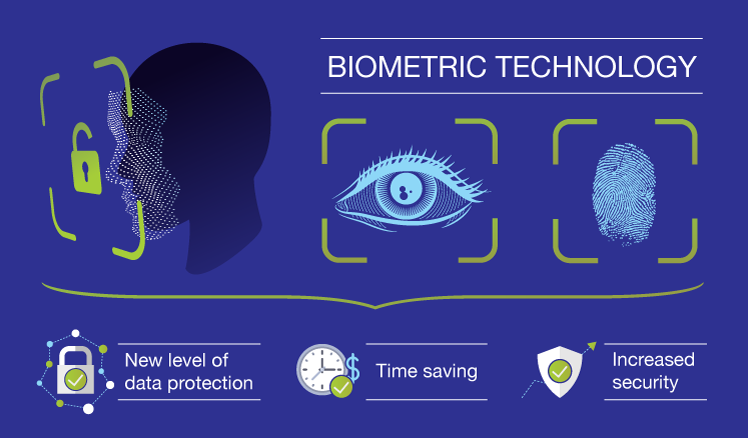Biometric Technology: Advanced Technologies Are Making Their Way into the Workplace
Editor’s note: In the article, Dmitry explains why businesses should consider biometric technologies as an alternative authentication option. Read on if you’re concerned with your business operations being secure, and don’t hesitate to explore the possibilities of a deeper engagement of security specialists via our penetration testing firm.
Although it might seem new to some people, the use of biometric technology has been around for quite some time. The U.S. authorities are on record as having used the technologies back in the 1970s and 80s. The U.S. police used the popularly known automatic fingerprint identification systems (AFIS) right from the advent of mainframe computers. Yet, the use of advanced biometric technology has not been widespread in the workplace until recently.

According to a recent research by Spiceworks, an industry leader in the IT community, up to 90% of business owners will be using biometric technology for authentication purposes by the year 2020, compared to today’s 62%. The source claims that only 14% of companies use facial recognition for authentication, while 57% use fingerprint scanning for that purpose.
Why businesses need biometric technology
There are a few reasons why the use of biometric technology in the workplace becomes inevitable. Here are its key advantages over other widely-used authentication methods, such as smart cards and passwords.
- New level of data protection
In the last couple of years, many organizations have relied on passwords and four-digit pins to access various sets of data at the workplace. But oftentimes, hackers have no difficulty in penetrating through the firewall and stealing sensitive data. Such data may include a trade secret, sensitive employee data, such as health records and any other information that could cause problems if it lands in the wrong hands.
Although there have been cases of biometric data being stolen, with advanced technologies such as behavior analysis, it becomes easier to restrict data access to the authorized personnel only. Some of these technologies are already in use with various Microsoft, Facebook, and Apple devices. For instance, the iPhone X introduced face recognition as an option for authentication. It combines facial recognition and behavior learning to be sure that you are the real owner of the phone. For instance, it would learn with time how you hold your phone, whether you type with both hands and how hard you press on the touchscreen.
- Time saving
For business owners, time wasted is money lost, literally. In the past few years, companies have struggled with analyzing employee attendance and overtime payments among other time management issues. With biometric technology, employees’ time is accurately tracked, so that they can be fairly compensated for overtime and the hours worked.
On the same note, employers, sometimes, lose millions from time theft issues such as buddy punching. By using automated time management systems with biometric technology integration, companies can save a load of time and money. In addition, it makes employees scheduling for remote work smooth and manageable.
- Increased security
Access to various departments might not be a huge problem for small businesses. But larger organizations could easily face security issues with a huge number of employees and visitors moving around every day. In order to control traffic to areas requiring special protection, business owners could use a bit of help from biometric technologies.
The future of biometrics
Fingerprint scanning, iris scanning and facial recognition are just some of the common ways that biometric technology is used in the workplace today. Still, in the near future, we might be looking at different and more effective ways to avoid any kind of compromise as regards authentication at the workplace.

